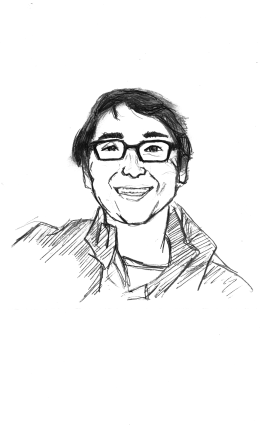 One of my professors recently quipped that “history doesn’t repeat itself, but it does rhyme.” The American political landscape is filled with a wide variety of methods of analyzing its fickle and often maddening occurrences. PaulKrugman of The New York Times applies an economist’s lens. Georgetown’s acclaimed professors have proven adept at fusing analyses of religion, values and politics. Missing from the spectrum, however, is the one discipline that I believe may yield more answers than most: history.
One of my professors recently quipped that “history doesn’t repeat itself, but it does rhyme.” The American political landscape is filled with a wide variety of methods of analyzing its fickle and often maddening occurrences. PaulKrugman of The New York Times applies an economist’s lens. Georgetown’s acclaimed professors have proven adept at fusing analyses of religion, values and politics. Missing from the spectrum, however, is the one discipline that I believe may yield more answers than most: history.
Americans are notoriously lukewarm to the notion of history. In a recent online survey, 89 percent of respondents expressed confidence that they could pass a fairly simple test about American history. Eighty-three percent of them promptly failed it. This statistic is worrying, but maybe we can give Americans some benefit of the doubt. In this country, the past is often of little consequence in daily life. The American ethos always casts an unshakeable gaze on future prospects rather than the often-inconvenient realities of history. It could also be because debates about the past often turn scarily contemporary. Anyone who has ventured into the world of Civil War scholarship sees this all too clearly, but that’s no reason to back away from the topic altogether. The study of history leads to greater collective self-understanding. It often tells us more about the present than scores of economists or political consultants can.
On the Hilltop, history remains an important part of what we do. All students are required to develop some background in it. In the School of Foreign Service, Edmund Walsh made sure his graduates would have solid grounding in the past. The SFS’s most famous class was a broad sweep of history called “Development of Civilization,” taught by a legend of years past named Carroll Quigley — reported to be the only professor at Georgetown or Yale to give one William Jefferson Clinton the diminutive result of a B. History is in our bones here. And it makes sense, too; it’s nearly impossible to shape or influence the future of our world without a grasp of where we have come from as a community, nation-state or civilization.
This will be a column about politics and history. In these pages, my aim will be to refocus and clarify our understanding of present-day debates based on similar ones that occurred in the long-forgotten 19thcentury or the increasingly ignored 20th. The problem of every era is that those who live through it almost universally regard the problems of their day to be infinitely more significant than those that have come before. However, even the quickest turn through the American past will reveal that this is not the first era of divided government but rather just one such era. Runaway government spending and political fracture over how to pay the bills is hardly the exclusive domain of Bush, Boehner and Obama. What about Washington, Hamilton and Jackson? Don’t think for a second that Jimmy Carter and Bill Clinton were the only presidents to reshape the Middle East; you would be forgetting Thomas Jefferson.
Unfortunately, the survivalist realpolitik of today’s Washington leaves little room for anything but the present, but it is highly likely that the historical “rhymes” my professor spoke of are telling us something. Ideally, they can crack open what is really going on in each debate or maybe offer some clues as to outcomes of contemporary political issues. These are, of course, lofty goals. But this column will try to approach them humbly and with the understanding that the past and present are never as clearly distinct as they might seem.
Ethan Chess is a junior in the College. PAST IS PRESENT appears every other Friday.













